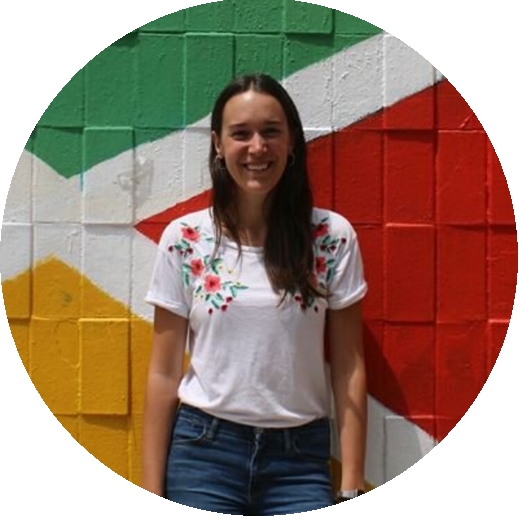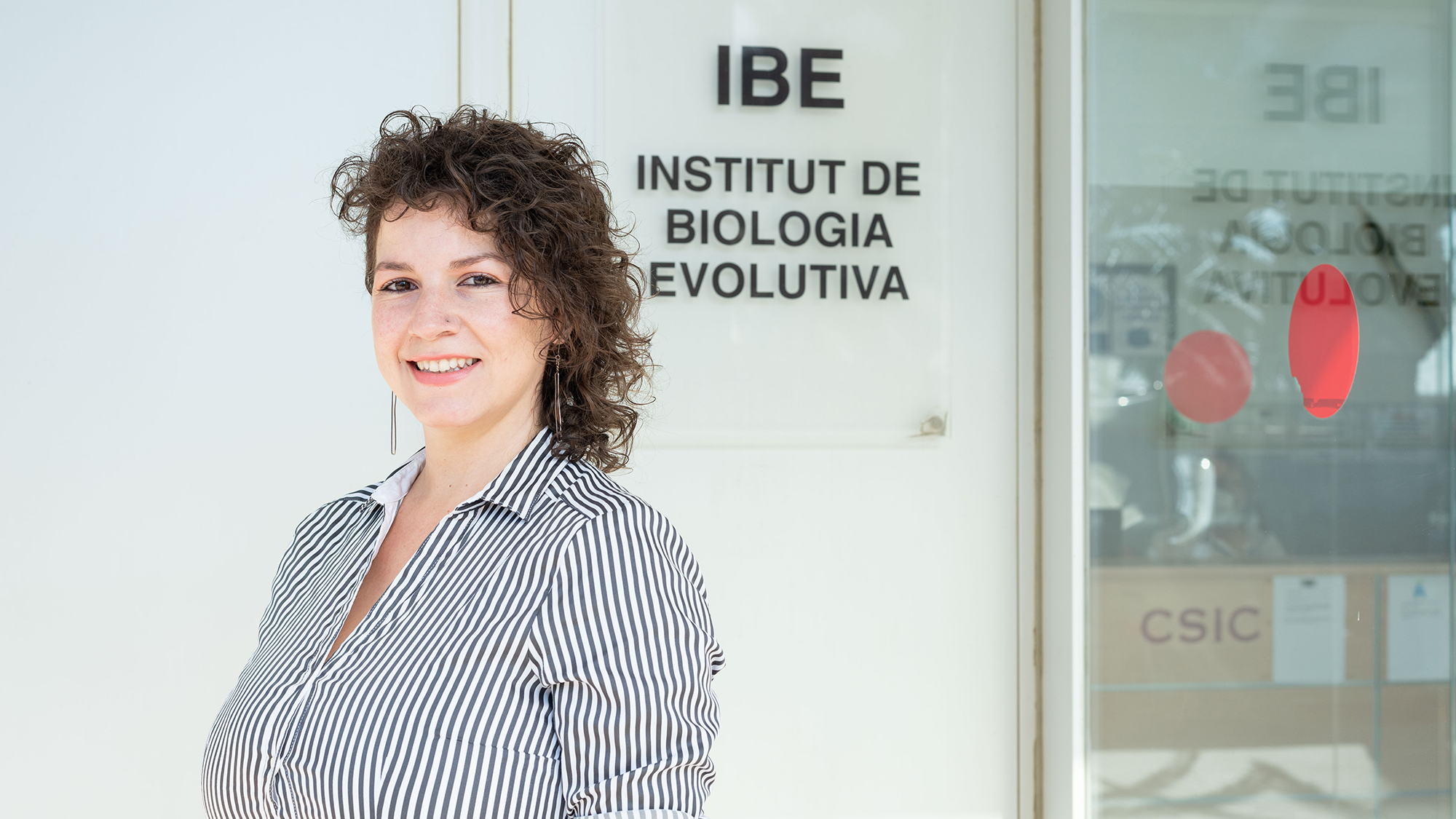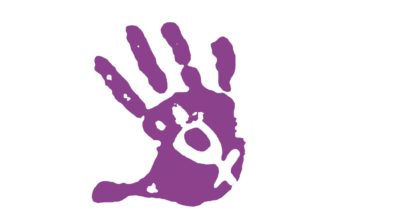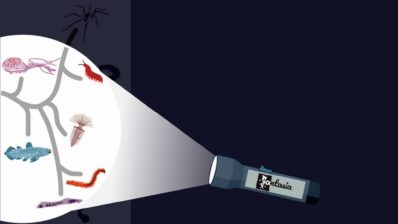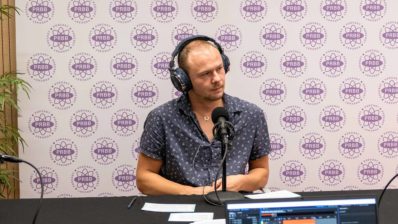The evolutionary biologist Rosa Fernández (Madrid, 1983) is passionate about traveling and discovering the world. Something that, to a certain point, she can do while working. Since December 2019, she directs the metazoa phylogenomics group at the Institute for Evolutionary Biology (IBE: CSIC-UPF). She admits that starting a research group in the midst of a pandemic has not been easy, but Rosa is not afraid of challenges. When talking about her work, Rosa sparks energy and tons of passion and it is clear that she is truly living the time of her life, making her dream come true: leading her own research group and doing it in her own way.
When she became a group leader, Rosa created a web page to introduce the members, explain their milestones and something innovative and very interesting: explain their working philosophy. Rosa runs away from hierarchy, she values the sense of humor and, above all, wants to do science in line with her values.
“My team is my absolute priority. This is because if you succeed, I succeed with you, and if you fail, I do it too”
Why is it important for you to write down how you want your laboratory to be?
During my scientific career, I have always worked in big laboratories and I have seen things that I did like and things that I did not. Plus, I have always wanted to be a principal investigator (PI). So, I have thought a lot about how I wanted my group to be. Over the years, you realize that the scientific career is hard because you are constantly evaluated and the rejection is recurrent, either because they reject your paper, or because you do not get a scholarship, etc. And, on top of this, there is the lack of stability, so many people end up burning out. And, honestly, I do not think you need to put more pressure on people to get better scientific results.
In recent years, I have taken different workshops on team leadership to learn how to motivate people, because in this job you cannot work alone. We all have good and bad things and we all know things that others do not know. And I want to adapt to each member of the team to get the best of each one. In addition, our projects tend to overlap with each other, so we can interact a lot. And this seems important to me, because it fosters this interaction between group members.
You speak a lot in the plural. No hierarchy at all?
Maybe it’s because I’ve just started and I don’t like being seen as the boss, but I want everyone to have the same importance. Sometimes a master’s student may know more about a topic than any other member of the laboratory, even the Principal Investigator, and this must be considered.
In Spain there is a lot of hierarchy. In college I didn’t ask a lot. Here, students are not used to send an email to a PI, and I think it is time to put hierarchy aside and start working together to solve the scientific questions; that is what matters to us at the end of the day.
“It is time that we put the hierarchy aside and start working together to solve the scientific questions, which is what matters”
Rosa Fernández (IBE:CSIC-UPF)
I can’t help the question… Does this concern to lead in a different way come from having good mentors or the other way around?
I have had very good mentors. Both in the Soil Zoology laboratory of the Complutense University of Madrid, where I did my doctorate, and in the laboratories of Gonzalo Giribet at Harvard University and Toni Gabaldón at the Centre for Genomic Regulation (CRG), where I did my stays as a postdoc. They all have given a lot of support to me. But many close friends have experienced completely different situations and this has made me reflect. I have been lucky to meet people who believed in what I did. If I was helping in the direction of a master’s thesis, I appeared as a director. And this is really valuable when you are evaluated for a scholarship. And, many people cannot prove the work they have done.
Maybe it has been this contrast between the luck I have had and what I have seen around me, that has made me vindicate how I want my laboratory to be and also, make it public. My aspiration is that the new members who arrive to the lab, will be able to know where they are going to work. Because many times, as a student, you don’t know many things of the group you are joining.
I wish everyone had reflected on how they want to build their team!
In fact, I got the idea from a women’s leadership workshop organized by the CRG’s LIBRA program. This workshop helped me decide and develop how I wanted my leadership style to be. I remember an instructor showing us web pages of PIs that explained how they wanted to lead their teams. And from here, I started looking at websites for inspiration and I wrote this definition.
After all, starting a research group is like entering a new house. You want to arrange it so it feels like home.
Let’s talk a bit about the work you have already done to build the group. How was starting a laboratory in the year of the pandemic? Judging by the scholarships you have received, it has not affected you too much!
Getting funding takes a long time and in our case it has gone well because we have worked hard and have been very lucky. When you ask for scholarships you never know how the story will end, and getting the ERC totally changed our lives!
Since I started the group by the end of December 2019, we were able to apply to the 2019 and 2020 calls, so we had more opportunities. And the pandemic… it has slowed us down a bit, but since we had hardly started working, it didn’t stop us that long.
Your group is young, but you are already nine people. And women abound! Have you made an effort to attract female scientists?
No, the truth is that I have not made any distinction when selecting the candidates. I think seeing a female principal investigator is already inspiring. For many women who do science, working in a group led by a woman is motivating. But if all the applications had been from men, obviously I would have put some kind of filter.
Why?
Because we are very few women in science and it just can’t be. It is not fair nor does it make sense. If we do not strive to give equal opportunities to everyone, we will lose lots of brilliant brains. Look, at IBE we are only 5 female principal investigators. And, above all, young women are lacking because the moment of starting a group comes together with motherhood and it is complicated.
